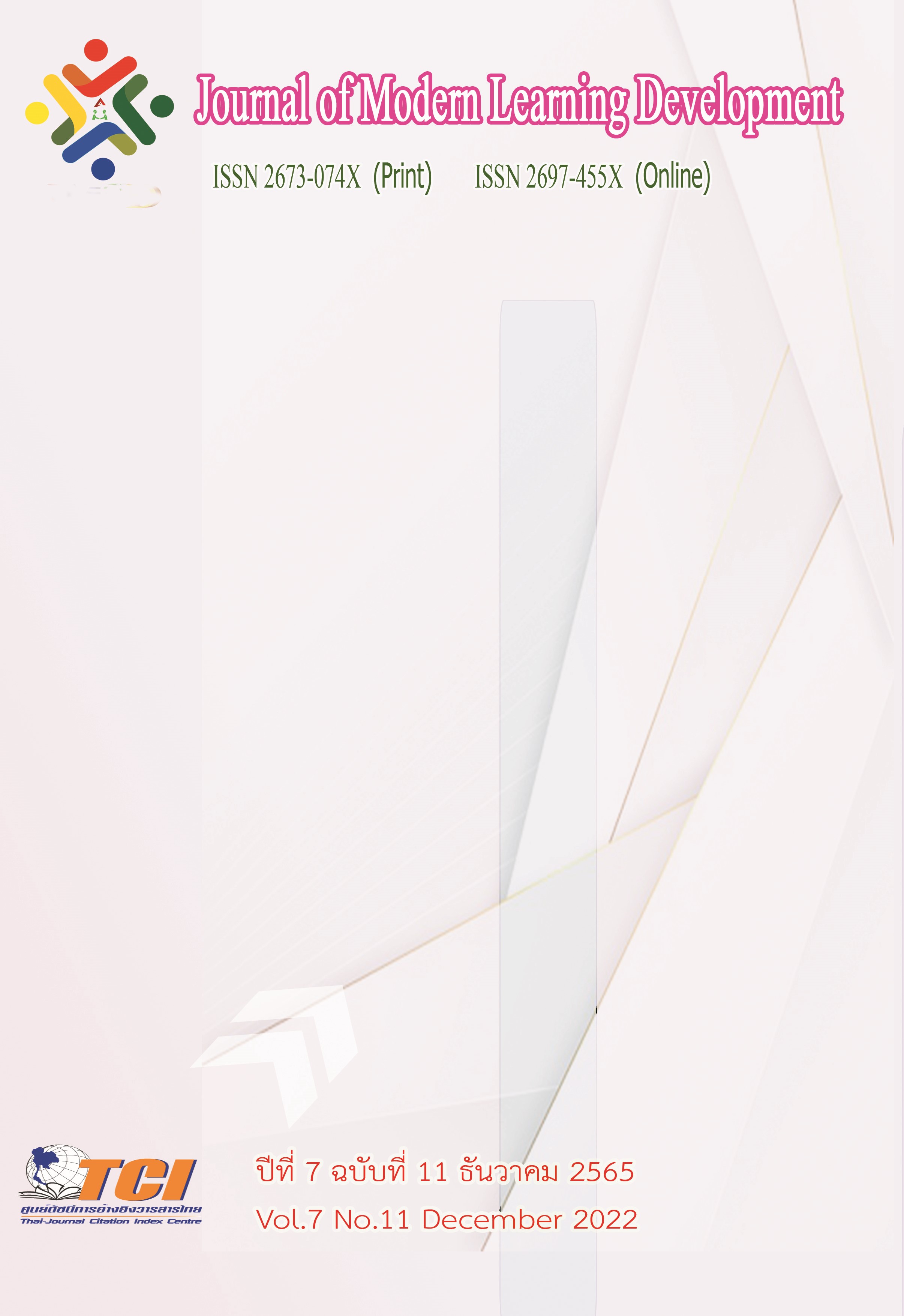กระบวนการจัดการขยะมูลฝอยแบบมีส่วนร่วมของชุมชนอย่างยั่งยืน
Main Article Content
บทคัดย่อ
การจัดการขยะมูลฝอยเป็นการดำเนินงานที่เกี่ยวข้องกับการลดคัดแยกขยะ การทิ้งขยะ การเก็บขยะไว้ในภาชนะ และการเก็บรวบรวม เพื่อให้การดำเนินการขนส่งนำไปกำจัด ณ สถานที่กำจัดขยะที่ถูกหลักวิชาการ ซึ่งบทความวิชาการนี้มีวัตถุประสงค์เพื่อศึกษากระบวนการจัดการขยะมูลฝอยแบบมีส่วนร่วมของชุมชนอย่างยั่งยืน พบว่า ประชาชนและหน่วยงานภาครัฐต้องเข้ามาร่วมดำเนินการด้วยกัน คือ 1) การจัดการมูลฝอย ณ แหล่งกำเนิด มูลฝอยที่เกิดจากชุมชนมากกว่ามูลฝอยที่เกิดจากแหล่งอื่น ประชาชนต้องนำหลักการจัดการมูลฝอย คือ หลัก 3Rs (Reduce Reuse and Recycle) มาเป็นแนวทางในการปฏิบัติเพื่อการใช้ทรัพยากรที่มีอยู่อย่างคุ้มค่าสามารถช่วยลดปริมาณขยะให้น้อยลงได้ 2) การเก็บรวบรวมมูลฝอยในชุมชน ประชาชนนั้นต้องคัดแยกขยะก่อนนำไปทิ้งในภาชนะที่หน่วยงานได้จัดไว้ให้ เพื่อให้ง่ายต่อการเก็บรวบรวมมูลฝอยในชุมชนของชุมชนและหน่วยงานในพื้นที่ โดยประชาชนต้องคักแยกขยะด้วยกันใน 4 ประเภทก่อนนำไปทิ้ง คือ ขยะรีไซเคิล ขยะอินทรีย์ ขยะอันตราย และขยะทั่วไป 3) การกำจัดมูลฝอย ประชาชนและหน่วยงานภาครัฐต้องให้ความสำคัญกับกระบวนการการกำจัดมูลฝอยที่ถูกหลักสุขลักษณะมี 3 วิธีได้แก่ การกำจัดมูลฝอยด้วยการเผา การหมักทำปุ๋ย การฝังกลบแบบถูกสุขลักษณะ
Article Details
เอกสารอ้างอิง
กญญ์ณณัฎฐ์ วชิรหัตถพงศ์. (2560). การมีส่วนร่วมจัดการขยะมูลฝอยของคนในชุมชนเขตชุมชนเทศบาลเมืองบ้านบึง จังหวัดชลบุรี. งานนิพนธ์บริหารธุรกิจมหาบัณฑิต สาขาวิชาการจัดการสาธารณ. วิทยาลัยพาณิชยศาสตร์. บัณฑิตวิทยาลัย: มหาวิทยาลัยบูรพา.
กรมควบคุมมลพิษ. (2559). แผนแม่บทการบริหารจัดการขยะมูลฝอยของประเทศ (พ.ศ.2559-2564). กรุงเทพมหานคร: กระทรวงทรัพยากรธรรมชาติและสิ่งแวดล้อม.
กรมควบคุมมลพิษ. (2564). คู่มือการลด และคัดแยกขยะมูลฝอยภายในบ้านและที่ทำงาน. กรุงเทพมหานคร: กระทรวงทรัพยากรธรรมชาติและสิ่งแวดล้อม.
ทรงวุฒิ เรืองวาทศิลป์. (2550). การมีส่วนร่วมของชุมชนในการจัดการศึกษาในพื้นที่บริการของโรงเรียนล้อมแรดวิทยา อำเภอเถิน จังหวัดลำปาง. วิทยานิพนธ์การบริหารการศึกษามหาบัณฑิต สาขาวิชาการบริหารการศึกษา. บัณฑิตวิทยาลัย: มหาวิทยาลัยเชียงใหม่.
ปทิดา ปานเนตรแก้ว. (2550). การมีส่วนร่วมของประชาชนในการบริหารพัฒนาท้องถิ่นขององค์การบริหารส่วนตำบล : ศึกษาเฉพาะกรณีองค์การบริหารส่วนตำบลสวนหลวง อำเภออัมพวา จังหวัดสมุทรสงคราม. วิทยานิพนธ์รัฐประศาสนศาสตรมหาบัณฑิต สาขาวิชารัฐประศาสนศาสตร์. วิทยาลัยการปกครองท้องถิ่น มหาวิทยาลัยขอนแก่น.
สำนักงานสิ่งแวดล้อมภาคที่ 2 ลำปาง. (2564). คู่มือสำหรับองค์กรปกครองส่วนท้องถิ่น “การจัดการขยะมูลฝอยชุมชนอย่างครบวงจร”. ลำปาง: สำนักงานสิ่งแวดล้อมภาคที่ 2 ลำปาง.
Cohen, J.M. & Uphoff, N.T. (1980, March). Participation's place in rural development: Seeking clarity through specificity, World Development Elsevier. 8 (3), 213-235.


